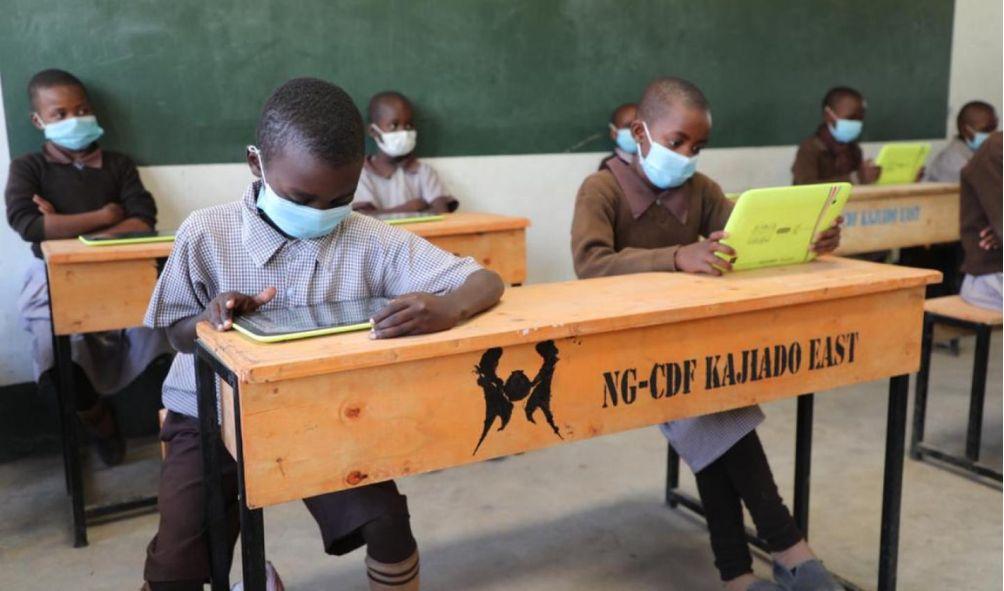Education on the Brink: Rising Commodity Prices Threaten School Closures, Heads Demand Funding
Schools across the nation struggle to keep students enrolled as commodity prices continue to rise and previously established budgets are broken.
Likewise, a month after schools opened, the Ministry of Education has yet to distribute the capitation funds.
As the institutions run out of food and other supplies, school administrators must decide whether to incur additional debts with suppliers or ask parents to pay more.
They now warn that they will be unable to keep students in school if the government does not intervene immediately. There is a risk of unrest, according to some school administrators, if the delay in releasing funds continues.
As many households struggle economically, many parents are unable to pay school fees in full. This has exacerbated the situation.
Since schools drew up their budgets, commodity prices have skyrocketed, in some instances more than doubling. “The Department of Education must immediately send capitation grants to schools. Due to financial obstacles, schools are operating on the brink. “Headmasters are speaking with students to reach an agreement on food rationing or meal skipping, which is a very sensitive issue, especially in boarding schools,” said Emuhaya MP and Kenya Union of Post-Primary Education Teachers national chairman Omboko Milemba.
ALSO READ: Government Embraces Flexibility in Housing Fund: A Welcomed Relief
“The situation is dire; suppliers have not been paid. “As a union, we are requesting that Education Cabinet Secretary Ezekiel Machogu prioritize the disbursement of funds within the next three days; otherwise, schools will be forced to close,” he explained.
He cautioned that closing schools would be detrimental to students and the academic calendar. The Nation has determined that schools pay between 5h15,000 and 5h20,000 for a 90kg bag of beans, while maize costs between Sh7,000 and Sh8,000. Both are common in school lunches.
“Githeri was once the staple food at our school, but it is now prohibitively expensive. Rice is less expensive, but I’m afraid that if we switch to rice and then back to githeri when prices stabilize, the students will rebel and there will be chaos,” said a school administrator. He added that portion reduction was not possible.
Electricity and fuel costs rise In addition to food, the price of electricity and fuel has increased. According to the Kenya National Bureau of Statistics, the price of 50 units of electricity increased to Sh1,326.535 in May, from 5h796.83 in May of the previous year. A liter of diesel costs an average of 5h169.10, up from 5h131.91 at the same time last year, while a liter of gasoline costs an average of 5h183.29, up from Sh150.94. Numerous schools utilize diesel for their generators and gasoline for their vehicles.
ALSO READ: Waiguru Evades Interrogation Amid Mounting Pressure to Explain Ksh 65.7B Fund Allocation
Current prices are significantly higher than what schools budgeted for in June of last year, placing management committees in a difficult position as they are unable to adjust fees without government approval.
While the government pays for tuition at elementary and secondary schools, parents are responsible for board and meals at day schools.
A head teacher in Embu County stated, “We have used the money parents have contributed to purchase learning materials, pay salaries, electricity, and print exams, among other things.”
Zakayo Chepchieng, chairman of the Kenya Secondary Schools Heads Association Nandi Central, stated that the high food price crisis has affected all schools, forcing them to spend more to keep students in school.
“Parents continue to pay the same school fees, although most of them do so in installments as opposed to paying in full in the past,” the official said.
“We accept nearly everything on credit, which is very costly. I fear that the schools will have enormous deficits, and we do not know who will pay for them. The only solution is to increase fees or capitation,” stated another principal.
Due to the high cost of living, suppliers have also imposed harsh conditions on schools, such as requiring payment in advance before delivering essential food items. The National Parents Association’s president, Silas Obuhatsa, opposed the closure of schools “because parents are also starving at home.”
ALSO READ: Raila’s Absence Sends Shockwaves: National Prayer Breakfast Lacks Key Political Figures
“Students are easier to manage in school than at home. We do not support the early closure of schools,” he said, urging parents with significant school fee arrears to salvage the situation by fulfilling their obligations. “School administrators should also attempt to persuade students to accept food that is not necessarily on their standard menus,” he added.
Stephen Sang, the governor of Nandi, stated that secondary school principals had requested food assistance from the county government.
“Every time I enter my office, I find numerous requests from schools asking my administration to assist them in purchasing maize and beans, which they cannot afford unless prices drop,” the governor stated.
Mr. Machogu promised last week that Sh28 billion would be deposited into school accounts by Friday. The CS did not respond to our calls, and sources in his ministry confirmed that he and Principal Secretary Bello Kipsang were in a daylong meeting.
Education on the Brink: Rising Commodity Prices Threaten School Closures, Heads Demand Funding
HEY READER. PLEASE SUPPORT THIS SITE BY CLICKING ADS. DON’T FORGET TO HIT THE NOTIFICATION BELL FOR MORE UPDATES AROUND THE GLOBE.
